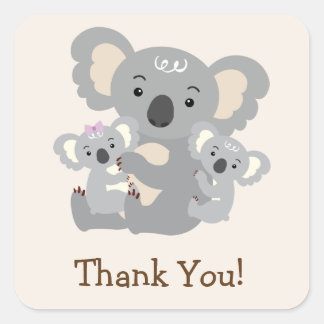KOALA
http://www.nationalgeographic.com/content/dam/animals/pictures/mammals/k/koala/koala_02.adapt.885.1.JPG
About the Koala
Though often called the koala “bear,” this cuddly animal is not a
bear at all; it is a marsupial, or pouched mammal. After giving birth, a
female koala carries her baby in her pouch for about six months. When
the infant emerges, it rides on its mother's back or clings to her
belly, accompanying her everywhere until it is about a year old.
Sleepy Behavior and Eucalyptus Diet
1. Scientific classification
Kingdom : Animalia
Phylum : Chordata
Class : Mammalia
Infraclass : Marsupialia
Order : Diprotodontia
Family : Phascolarctidae
Genus : Phascolarctos
Spesies : P. cinereus
2. Life cycle
The breeding season for Koalas is approximately August to February.
This is a time of increased amovement for Koalas, with sound levels
increasing as males bellow more frequently. This is also when the young
from the previous year leave their mothers and disperse. This period is
the busiest for Koala carers, as suburban Koalas are on the move,
crossing paths with cars and dogs, and higher rates of stress-induced
sickness.
Females generally start breeding at about three or four years of age,
usually producing one offspring each year. However, not all females in a
wild population will breed each year; some produce offspring only every
two or three years, depending on factors such as age and habitat
quality. In the average female's 12-year life span, she may produce five
or six offspring over her lifetime.
Female koalas bear only 1 koala a year. A newborn
koala would only be about 2 centimeters long. A baby koala is called a
"joey". Once born, it crawls in the mother's pouch for 6-7 months and
feeds only on milk. After 22 weeks, the "joey" is able to open their
eyes.At one year old, they are able to eat eucalyptus leaves from the
eucalyptus trees.
 from: https://goo.gl/images/GqeoMr
from: https://goo.gl/images/GqeoMr
Female Koalas generally live longer than males, as the males are more
often injured during fights, and occupy poorer habitat. Males also tend
to travel longer distances. Putting a life span on the average Koala can
be misleading, as Koalas living in an undisturbed habitat would have a
greater life expectancy than those living in suburbia. Some estimates
for the average life-span of an adult wild male Koala are ten years, but
the average survival rate for a dispersing sub-adult male living near a
highway or a housing estate is closer to two or three years.
3. Uniqueness
Koalas are unmistakable: they are broadly similar in appearance to the
wombat (their closest living relative), but have a thicker, softer coat,
much larger ears, and longer limbs, which are equipped with large,
sharp claws to assist with climbing. Weight varies from about 14 kg for a
large, southern male, to about 5 kg for a small northern female. They
are generally silent, but male koalas have a very loud advertising call
(a nasal snort that human children delight in imitating) that can be
heard from almost a kilometre away during the breeding season.
Koalas are found all along the eastern coast of Australia from near
Adelaide to the base of the Cape York Peninsula, and as far into the
hinterland as there is enough rainfall to support suitable forest. The
word "koala" comes from the aboriginal word meaning "does not drink".
The koalas of South Australia were exterminated during the early part of
the 20th century, but the state has since been repopulated with
Victorian stock.
Koalas will eat the leaves of a wide range of gum trees, and even some
exotic species, but they have firm preferences for particular varieties,
which vary from one region to another: in the south Mana Gum, Blue Gum
and Swamp Gum are favoured; Grey Gum and Tallowwood are important in the
north, and the ubiquitous River Red Gum of the isolated seasonal swamps
and watercourses that meander across the dry inland plains allows
koalas to exist in surprisingly arid areas. Of the over 120 species of
gum trees, only about 20 are not poisonous to koalas.
from: https://youtu.be/hoataOsqfhc
Soo.. that's all from me about koala.... Thanks you & keep reading my blogger!!!
with love, Alyfa SA

https://goo.gl/images/Wv4ru5

Komentar
Posting Komentar